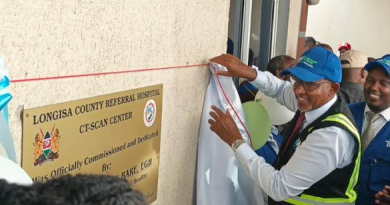Kenya’s War on HIV Losing Men: Grim Stats Unveiled at Groundbreaking Summit
By Gladys Yator.
Men are falling through the cracks in Kenya’s battle against HIV and AIDS, a reality that emerged with urgency during the inaugural Men and Boys Summit held at Tambach Teachers College Elgeyo Marakwet County.
Stark data shared at the summit revealed a worrying gender gap: of the 5.8 million HIV tests conducted across the country in 2023, only 28% were taken by men. Even more alarming, approximately 7,633 adult males died of AIDS-related complications that same year, a statistic that has sent shockwaves through public health circles.
“These numbers are not just data, they are fathers, brothers, and sons we are losing unnecessarily,” said Douglas Bosire, the Acting CEO of the National Syndemic Diseases Control Council (NSDCC). He underscored that men’s poor linkage to HIV treatment trails significantly behind that of women, creating a dangerous blind spot in Kenya’s health system.
Elgeyo Marakwet Governor Wesley Rotich took the opportunity to issue a call to action, urging men to prioritize their health by getting tested. He pointed to poverty as a silent driver of the region’s rising HIV numbers, saying economic desperation was pushing women into transactional sex and exposing young girls to predatory relationships.
“Women are forced into risky affairs just to survive, while young girls fall prey to men who flash small amounts of money. It’s a cycle we must break, and it starts with awareness and accountability,” the governor said passionately.
The summit, a first of its kind, brought together stakeholders from eight counties, Uasin Gishu, Kericho, Trans Nzoia, Nakuru, Baringo, West Pokot, Nandi, and Elgeyo Marakwet, to address pressing issues affecting men and boys. Topics included HIV prevention, sexual and gender-based violence, mental health, and the alarming rise in teenage pregnancies.
Participants emphasized that empowering men and boys is not just about fixing statistics, it’s about restoring balance in families, communities, and the nation’s health outcomes.
“This summit marks a turning point. The era of leaving men behind in health conversations must end,” concluded Bosire.




